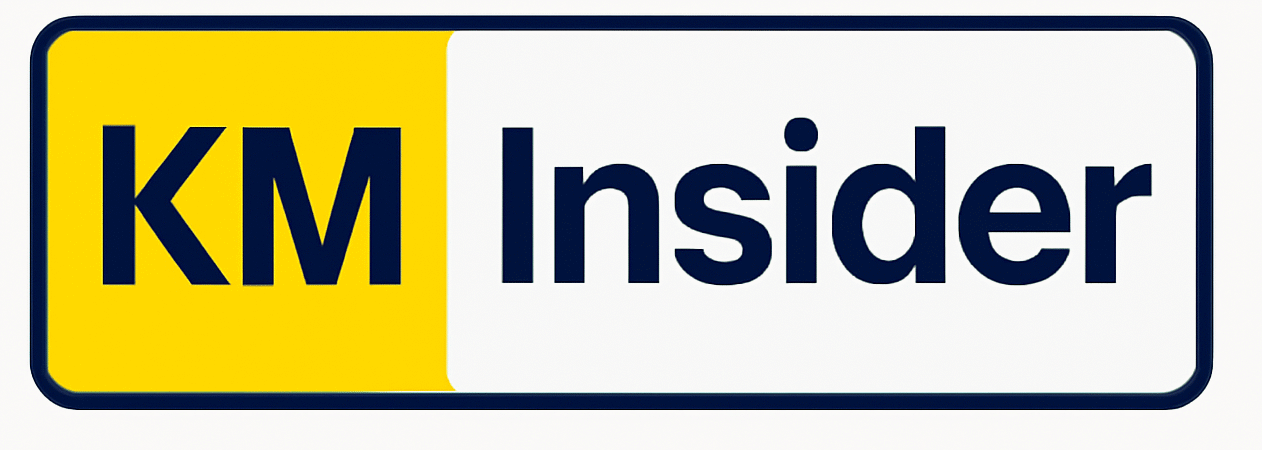Artificial intelligence is changing how companies operate. But AI alone can’t deliver results. It needs something more—it needs knowledge.
We’re not talking about raw data. AI needs accurate, organized, and up-to-date knowledge to work properly. That’s where Knowledge Management (KM) steps in. It provides the backbone for any AI system.
Let’s talk about why Knowledge Management is becoming the heart of every AI-driven organization—and what you should be doing to prepare.

Why AI Needs Knowledge, Not Just Data
AI systems don’t think on their own. They need content to learn from, patterns to detect, and context to understand.
Take a customer support chatbot. When someone asks a question, the chatbot searches for answers—like guides, FAQs, or past tickets. These answers come from knowledge your company already has. That content doesn’t appear magically. It’s collected, written, reviewed, and organized—that’s KM in action.
Deloitte has emphasized that many AI project failures stem from poor data and knowledge infrastructure—not faulty algorithms or code. Without structured, accessible knowledge, even the most advanced AI systems fall short of expectations.
Without a solid KM system, AI will fall short. It may produce wrong answers, miss key info, or just confuse your users.
How Knowledge Management Makes AI Better
Think of KM as the prep work that makes AI useful.
When your knowledge is:
- Easy to find
- Up-to-date
- Well-organized
- Verified
… then your AI tools become more powerful. They work faster. They get things right. They help your teams more effectively.
More than half of HR leaders—53% report worries about bias and discrimination in AI systems, according to Gartner. That shows a real trust gap. One effective way to tackle that? Feed your AI with well-organized, high-quality internal knowledge.
AI is only as smart as the knowledge it’s trained on. KM is how you shape that knowledge.
Better Knowledge Management = Better Decisions
AI tools don’t make decisions. People do. But AI can support people—if it’s trained with the right context.
Knowledge Management makes sure your past wins, lessons, customer stories, and best practices are all recorded. So when AI steps in, it pulls from rich, relevant knowledge.
A recent McKinsey survey found that almost half of business leaders worry about AI producing biased or inaccurate results. That’s a major trust issue. One of the best ways to close that gap? Make sure AI has access to well-managed, high-quality knowledge.
AI Learns Faster With Good KM
When your content is clear, clean, and consistent, AI systems can learn and adapt faster.
It’s like training a new team member. If you give them a mess of documents, they’ll struggle. But if you give them a well-written guide, they’ll succeed quickly.
KM makes this possible for AI. It gives your tools the roadmap they need to learn faster, make fewer errors, and deliver better results.
Trust Depends on Knowledge Management
People won’t use AI if they don’t trust it.
That trust depends on what the AI is saying—and where it gets that info. If your AI tool keeps giving wrong or outdated answers, your teams will ignore it.
But when your Knowledge Management practices are solid—when content is reviewed, reliable, and up-to-date—your AI becomes more trustworthy. That leads to more adoption, more use, and better outcomes.
KM Supports People and AI
AI tools are here to help, not replace, your teams.
A service rep dealing with a tough customer case can use AI to pull past solutions, product updates, or similar issues. But only if that knowledge was captured in the first place.
Knowledge Management makes sure both AI and humans have access to the same high-quality information. It connects people and machines in a productive way.
What Leading Companies Are Doing
This isn’t just theory. Here’s what top organizations are already doing:
- IBM built smarter internal tools by connecting AI to a cleaned-up knowledge base.
- Microsoft added KM features in Azure to make AI outputs more accurate.
- Accenture used global KM efforts to power better client-facing AI tools.
These aren’t small upgrades—they’re strategic investments in staying ahead.
What You Can Do Right Now
You don’t need a huge budget to start. Here are a few simple steps:
- Capture knowledge now. Use tools like Notion, Confluence, or SharePoint.
- Clean your content. Remove or update anything that’s wrong or out of date.
- Organize it. Use categories, tags, and authors.
- Promote sharing. Reward employees who contribute helpful insights.
- Ask for feedback. Let users tell you what’s missing or confusing.
The more you improve KM, the better your AI systems will perform.
Final Word: Knowledge Management Is the Fuel for AI
If your organization is using AI—or plans to—then KM can’t be an afterthought.
It’s not just helpful. It’s necessary.
AI may be the engine of your business, but knowledge is the fuel. Without good KM, your AI won’t go far. With it, your tools become faster, smarter, and more useful every day.
Now’s the time to take KM seriously. Not just for the sake of AI—but for the future of your business.
Subscribe to receive notifications for free webinars on Knowledge Management.
